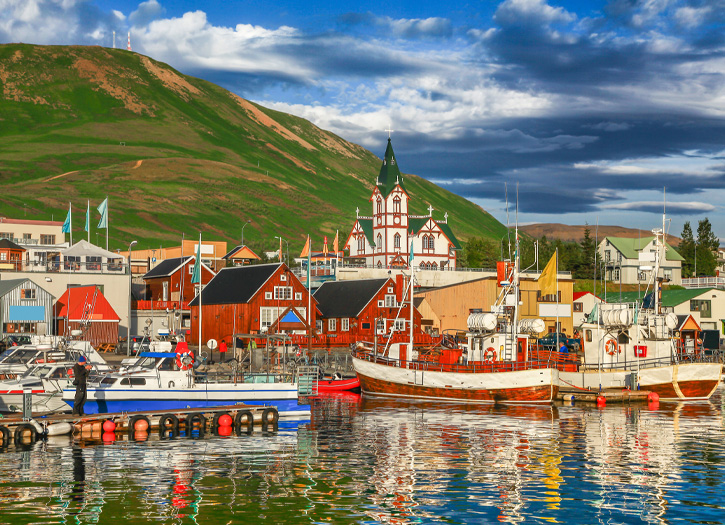On 8 April, as the cases surged over 1,600 and more recoveries than new infections were recorded for the second day in a row. Iceland recorded its sixteenth death on 1 November, its seventeenth on 2 November, its eighteenth on 4 November, and its nineteenth and twentieth on 7 November. A further three deaths occurred on 8 November, and another – the 24th overall – on 9 November. The 25th death occurred on 11 November in Sólvellir care home in Eyrarbakki.On 22 November, there were no new cases outside quarantine.
The response to the pandemic by Icelandic health authorities has focused on early detection and contact tracing and social distancing measures such as a ban on assemblies of more than 20 persons. As a member of the Schengen area, Iceland is restricting unnecessary travel by persons who are not citizens of the EU, the United Kingdom or the EFTA countries into the area but has not made other formal restrictions against international or domestic travel.On 24 January, the Directorate of Health announced preventive measures to curb the spread of SARS-CoV-2.
From 2 March, healthcare workers in Iceland were being encouraged to avoid travel and to remain in the country.As of 16 March, no official social distancing measures or limitations or bans on public gatherings are in effect.However, organisers cancelled or postponed a number of upcoming events, including the annual conference of the School of Humanities of the University of Iceland, Hugvísindaþing, which was set to have taken place on 13 and 14 March.At a press conference on 13 March, it was announced that public gatherings of more than 100 would be banned and universities and secondaries schools closed for four weeks.
Later that day, announcements were made that stated or emphasised that: panic-buying was unnecessary;no shortage of food or medicine was foreseen;elementary schools and preschools would not be closed, although restrictions would be in place to maximize social distancing within schools; and that all schools in the Reykjavík area would close on 16 March in order to prepare.The Directorate of Health and The Department of Civil Protection and Emergency Management have jointly launched an official website,with the latest information in Icelandic and English.On 16 March, the supermarket chain Samkaup announced that 27 grocery shops throughout Iceland would have special shopping times for vulnerable members of the public, including the elderly and those with chronic and underlying illnesses. Beginning 17 March, select Nettó and Kjörbúðin locations would reserve the hour from 9 to 10 a.m. for those shoppers at greatest risk of severe complications should they contract COVID-19.
As of 18 March, the whole world is defined as a high risk area. All travel abroad is discouraged and residents in Iceland who are currently abroad are encouraged to return home as soon as possible. Residents in Iceland who arrive from abroad will now go into quarantine.On 21 March, a stricter ban on public assemblies was put in place in Vestmannaeyjar. Assemblies there with more than 10 persons would now be prohibited.A still stricter ban was announced for the Húnaþing vestra district, where all inhabitants have been ordered to stay at home except to buy necessities.From 00:00 on 24 March, a nation-wide ban on public assemblies over 20 took effect. All swimming pools, museums, libraries and bars closed, as did any businesses requiring a proximity of less than 2 m (hairdressers, tattoo artists, etc.).On 5 October, closure of bars, gyms, and entertainment venues, as well as a limiting of maximum gathering size from 200 to 20, was ordered, due to a rise in cases.
Icelandic health officials have used voluntary home-based quarantines for all residents returning from defined high-risk areas and virus testing as the primary means of preventing transmission within the community. Icelandic health officials have tested a proportionately high number of arriving passengers from high-risk areas for COVID-19, with the hope that early detection of infections will prevent their spread.An early concern among Icelandic residents placed in home-based quarantine has been employees’ rights to paid leave while being quarantined; it was announced on 5 March that the COVID-19 outbreak will likely result in changes to legislation within the next weeks.







Add Comment
You must be logged in to post a comment.